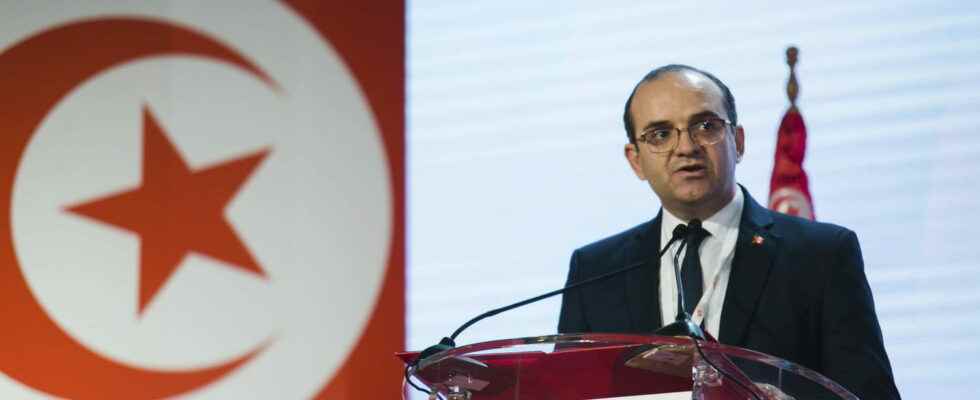TUNISIA REFERENDUM. The first official results of the referendum organized in Tunisia on the adoption of a new Constitution have come out and announce the victory of the yes with more than 90% of votes in favor according to the electoral authority.
[Mis à jour mercredi 27 juillet à 17h09] The first official results of the Tunisian referendum have been released. The adoption of the new Constitution strengthening the prerogatives of President Kaïs Saïed is on the right track, if not already announced by the partial results of the vote published on July 27 by the Tunisian electoral authority, Isie, which gives the ” yes” majority with 94.6% of the vote. Polling institutes predicted a similar result around 90% of votes in favor of the constitutional reform.
The “yes” to the new Constitution imposed by President Kais Saied in Tunisia, and which grants him vast prerogatives, won by an overwhelming majority of 94.6%, according to the electoral authority, on the basis of results preliminary officials #AFP #AFPGraphics pic.twitter.com/Bd7Qa6jARG
– Agence France-Presse (@afpfr) July 27, 2022
What is the result of the Tunisian referendum?
The final result of the referendum organized on July 25 in Tunisia is not yet known and should be officially communicated during the month of August. But it is not necessary to wait any longer to know the outcome of the ballot, on July 27 the first official results communicated by Isie announced an overwhelming majority of “yes”: 94.6%. If the polls already did not leave much room for doubt, now they are disappearing definitively. The new Tunisian Constitution will soon be adopted and the Tunisian President will be the first winner.
What is the participation rate in the referendum in Tunisia?
The Tunisian referendum raised important issues, but few mobilized in the polling stations on July 25, 2022. Barely 27.54%, or 2.5 million out of the 9.3 million Tunisian voters, took part in the ballot requested by the current president, Kaïs Saïed. It was they who celebrated at the end of the vote the vast majority of “yes” announced at the ballot box by all the polls.
The participation rate, barely above a quarter of Tunisian voters, nevertheless satisfied the president of the Independent High Authority for Elections (Isie), Farouk Bouasker. Despite the official abstention figures, the representative of the authority rejoiced in front of the media on July 25, reports the Figaro : “The voters were at the rendezvous with History and headed in very respectable numbers to the polling stations”. This significant abstention is partly due to the call for a boycott and non-participation in the ballot issued by the opposition and followed by some young Tunisian voters. The opposition forces consider the referendum “illegal” and designed without consultation.
Why are the result of the referendum and the new Constitution worrying?
The Tunisian referendum is an event because the outcome of the vote depends on the constitutional reform. The reform proposes the adoption of a new Constitution which, if it enters into force, will considerably strengthen the powers of the Tunisian President, Kaïs Saïed. “In this new Constitution, [le président] has all the executive powers, the legislative powers, the judicial powers and the religious powers”, remarked the member of the Tunisian workers’ party Hamma Hamami, to France info. A scenario dreaded by more than one who already sees authoritarian excesses taking shape.
The changes that would be made to the Constitution by a “yes” in the referendum would be significant: the president could in particular dismiss the head of government – who ensures the executive power with him – without having to justify himself, nor need to obtain the agreement or the confidence of Parliament. Thanks to this constitutional reform, the Head of State could also personally submit bills to Parliament and set their priorities. A way to make the role of head of government very incidental and to make the president the essential figure – even untouchable – of the regime, with a very significant concentration of power. The Parliament – whose prerogatives would be reduced – would also be put in competition in the drafting and voting of laws by another body, a chamber made up of representatives of the regions.
The text proposed to the Tunisians is highly criticized by political observers attached to the fragile Tunisian democracy being able to function as calmly as possible, with solid checks and balances. Sadok Belaïd, the jurist who was responsible for drawing up the new Constitution with the Head of State, said himself that he was in deep disagreement with the version of the text submitted to the referendum: he notably considered publicly that a yes to the referendum validating these constitutional changes could “open the way to a dictatorial regime”.
